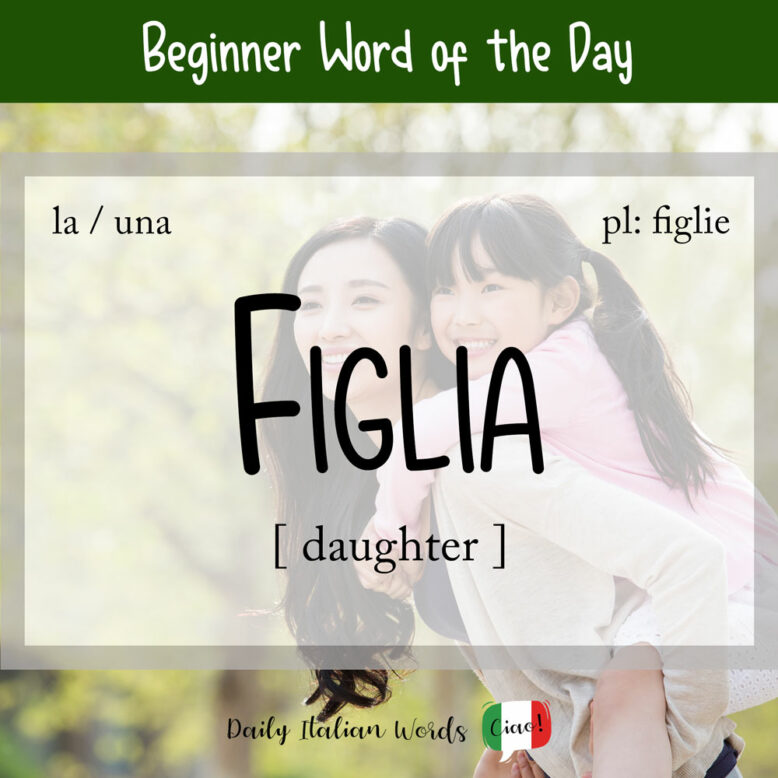The Italian word for daughter is figlia (plural: figlie) which is the feminine equivalent of figlio (son).

Ho una figlia e due figli.
I have a daughter and two sons.
It can also refer to young girl in general, or even an adult woman, in compassionate or affectionate statements.
Povera figlia, come ti sei ridotta!
Poor girl, look what’s become of you!
You can transform figlia into a term of endearment by adding -ola to the end of the word (figliola). As in the case of figlia, it can also be used in reference to a young woman. An antiquated version that you’ll only see in literature is figliuola.
La mia Elena è una brava figliola, lo sai?
My Elena is a good girl, you know?

Add the ending -stra to figlia and you end up with the word figliastra or step-daughter. An adopted daughter would be a figlia adottiva.
Figlia can also be used in a figurative sense when referring to the fruit, result or origin of something.
La verità è figlia del tempo.
Truth is born of the times.
In religious institutions, the noun is used for women who work in the education department, such as for example: Figlie della Carità (daughters of charity), Figlie del Cuore di Maria (daughters of Maria’s heart).
In the 17th century, a maid was called figlia di camera and a bridesmaid figlia d’onore.
Finally, the expression tale madre, tale figlia translates to like mother, like daughter.
Heather Broster is a graduate with honours in linguistics from the University of Western Ontario. She is an aspiring polyglot, proficient in English and Italian, as well as Japanese, Welsh, and French to varying degrees of fluency. Originally from Toronto, Heather has resided in various countries, notably Italy for a period of six years. Her primary focus lies in the fields of language acquisition, education, and bilingual instruction.


